
Four years ago, I took a flight. Not the usual ones that we were used to before COVID-19 descended upon the world. Along with my colleagues from 350.org, the Pacific Climate Warriors and Eriel Deranger, an Indigenous land defender from the Athabasca Chipewyan First Nation, we flew over the tar sands of Alberta, Canada — the dirtiest type of fossil fuels in the world. I bore witness to the mass destruction of land and water at one of the dirtiest oil extraction sites in the world. I saw first hand the massive toxic tailings ponds and the flow of toxic waste into the Athabasca River – a critical lifeline for local communities. I saw the scale of destruction authorized by Canada’s Prime Minister Justin Trudeau, that drives the climate crisis.
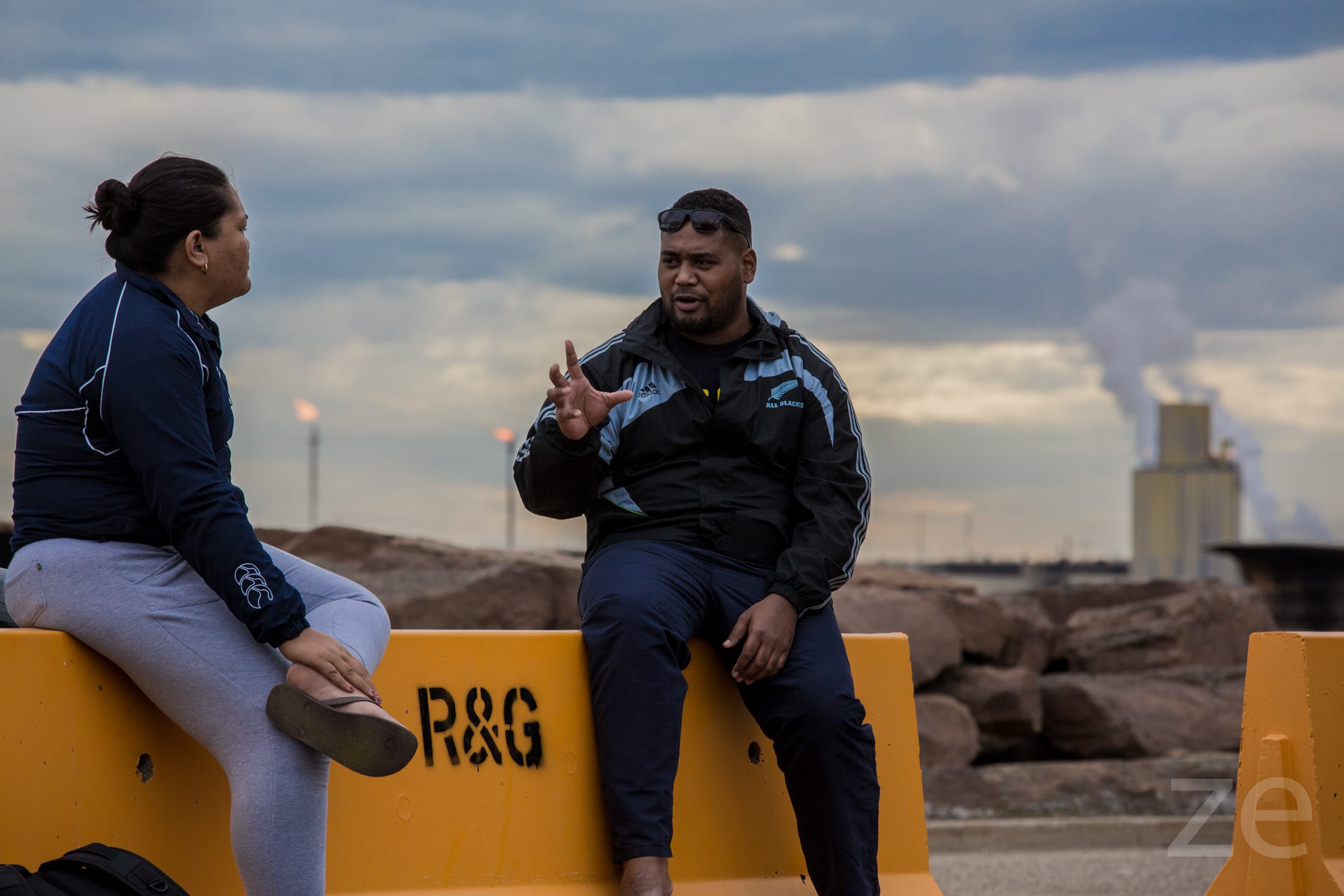
Pacific Climate Warriors, Raedena Savea, and George Giuvalu Nacewa
It was a life changing 30 minute flight — over destruction and despair of the fossil fuel industry. As an Indigenous Pacific Islander, during the flight, when I saw these massive machines and the holes they left in the ground, I couldn’t help but think, “Kiribati could fit in this hole here, Tuvalu could fit there.” It was truly the saddest thing I’ve seen to date. And at my age, I’m no stranger to village-leveling cyclones and the prospect of losing our ancestral homes to rising sea levels.
The flight showed something else too. Just a few kilometers away from these gargantuan machines, was an Indigenous community. They inhaled the polluted air, they drank from the fresh water that the processing plant took over, and I learnt that many of their people suffered health complications. As Pacific Climate Warriors, we raised our paddles in solidarity, documented our journey, which continued along the path of the proposed Trans Mountain Expansion (TMX) pipeline, an important artery for the expansion of the Canadian tar sands. I personally called on Prime Minister Trudeau to “stop exporting destruction” to the world by fueling the climate crisis through the expansion of the tar sands.
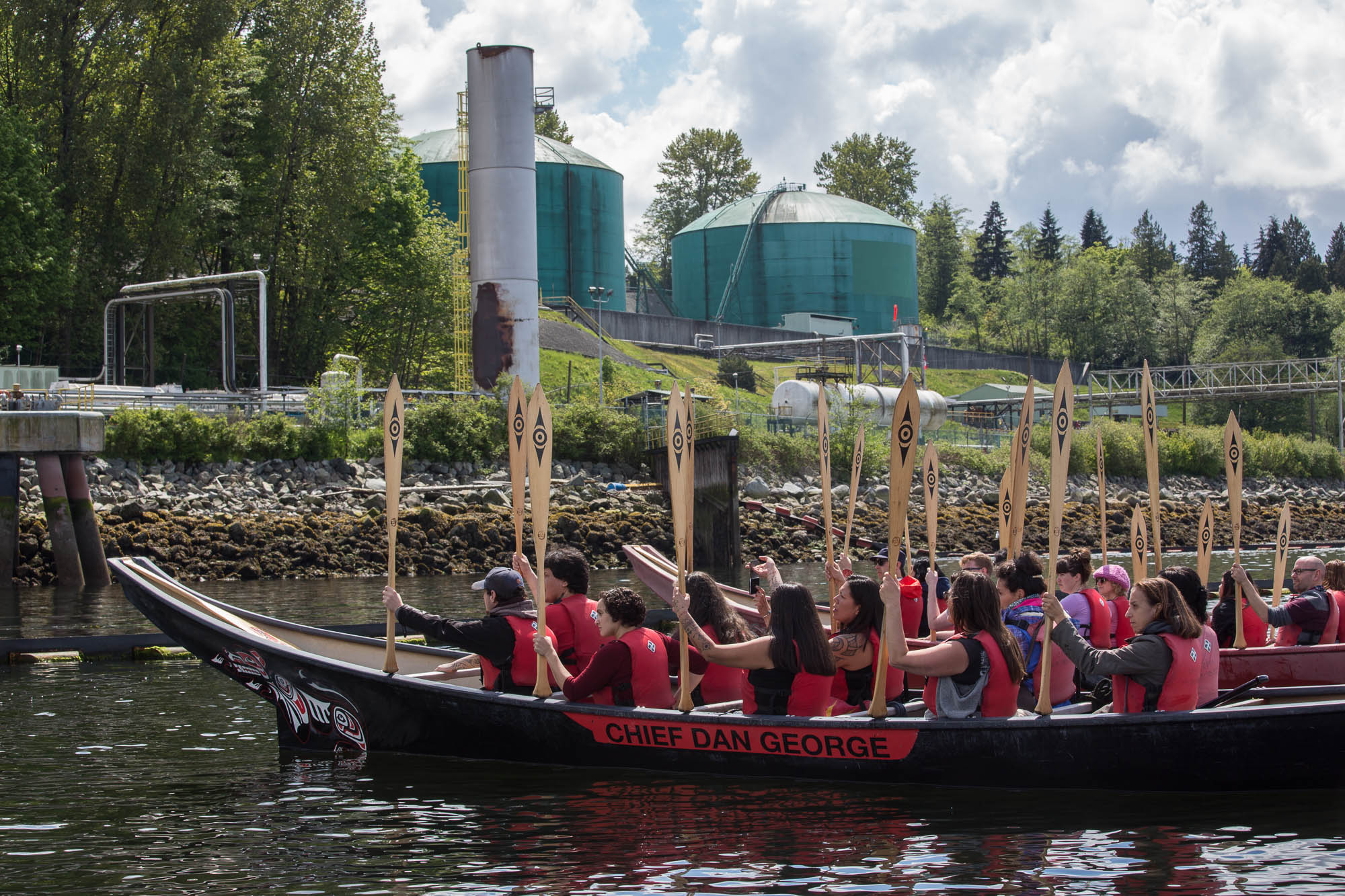
Water Ceremony at Kinder Morgan terminal
If you thought that was the horror story – spoiler alert – it’s not.
Four years after I first visited Canada’s tar sands pipeline, the world we live in is entirely different, yet the same. We now have a pandemic on our hands. Yet some things remain the same: the climate crisis continues to accelerate, governments (in this case Canada) continue to break their climate promises, and extractive industries continue to find ways to profit off the destruction of indigenous communities and their ancestral lands.
On a positive note, the TMX pipeline still has not been built. Since my visit, Indigenous-led people-powered resistance successfully pushed Texas oil giant Kinder Morgan to abandon this pipeline.
But, in a surprising move, Canadian Prime Minister Justin Trudeau purchased this pipeline and has since wasted billions of public dollars on this destructive project.
This pipeline will threaten the food sources and waterways of more Indigenous communities. More holes where Kiribati and Tuvalu could fit will be punched into ancestral land without consent. Tankers servicing the pipeline will impact the entire Salish Sea. The expansion is a global climate catastrophe — accelerating climate impacts across our cherished Pacific Islands and wherever you, the reader, may be.
My Pacific roots have always taught me: To always respect your Vanua (land and people) and your Vanua will look after you. This is why across the Pacific Islands, we haven’t changed either. We’re still demanding the bold climate action all of us deserve.
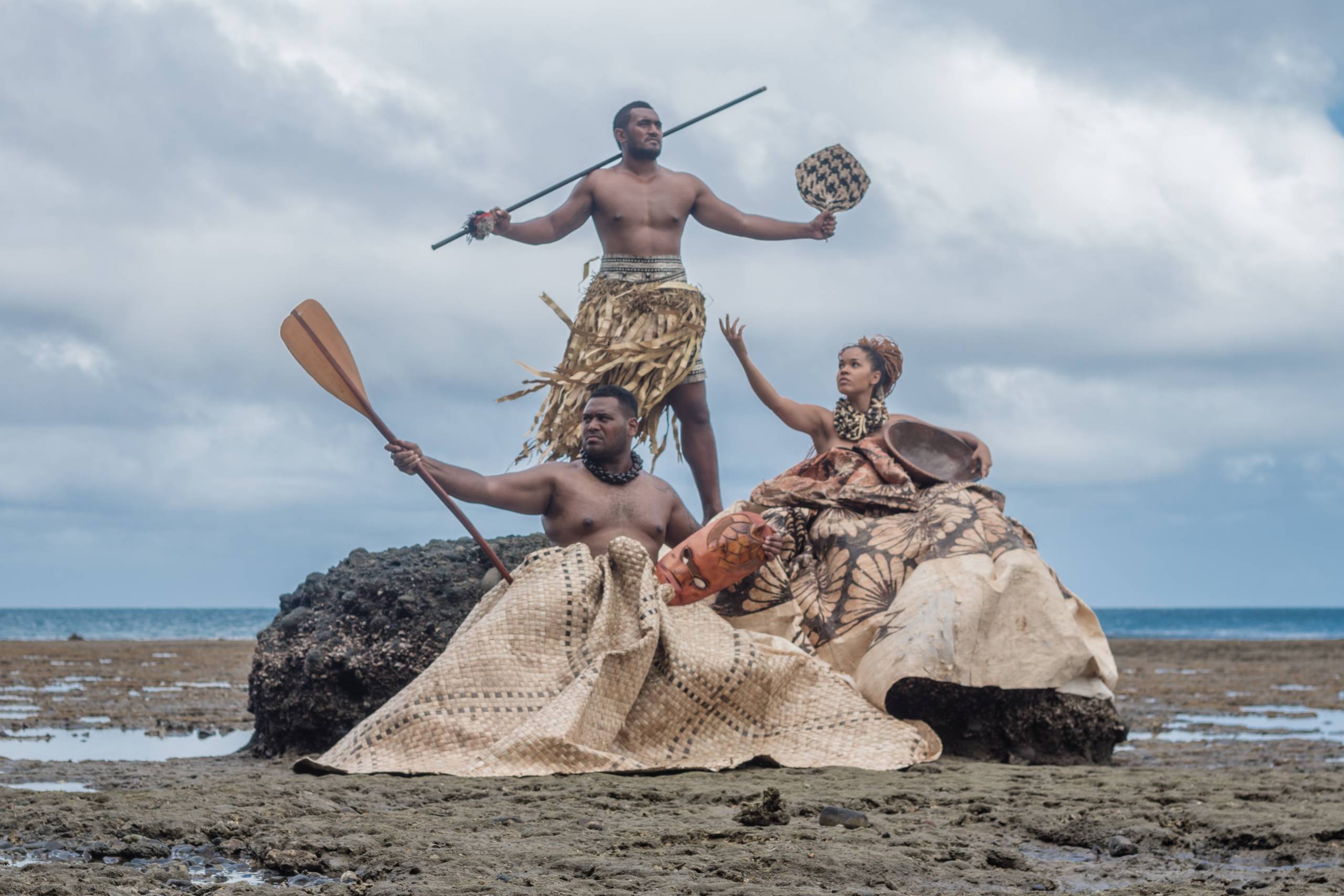
Rasie a Paddle (2017) Pre-Journey shoot.
From 14-21 June, the Pacific Climate Warriors across 17 islands joined a broad coalition, raising a paddle in solidarity with Canada’s Indigenous communities to call on insurance marketer Lloyd’s of London and other major insurers such as AIG, Chubb, and Liberty, to stop insurance for the Trans Mountain pipeline. Because when we cut the money flows from banks, insurers and other financial institutions, we keep fossil fuels in the ground.
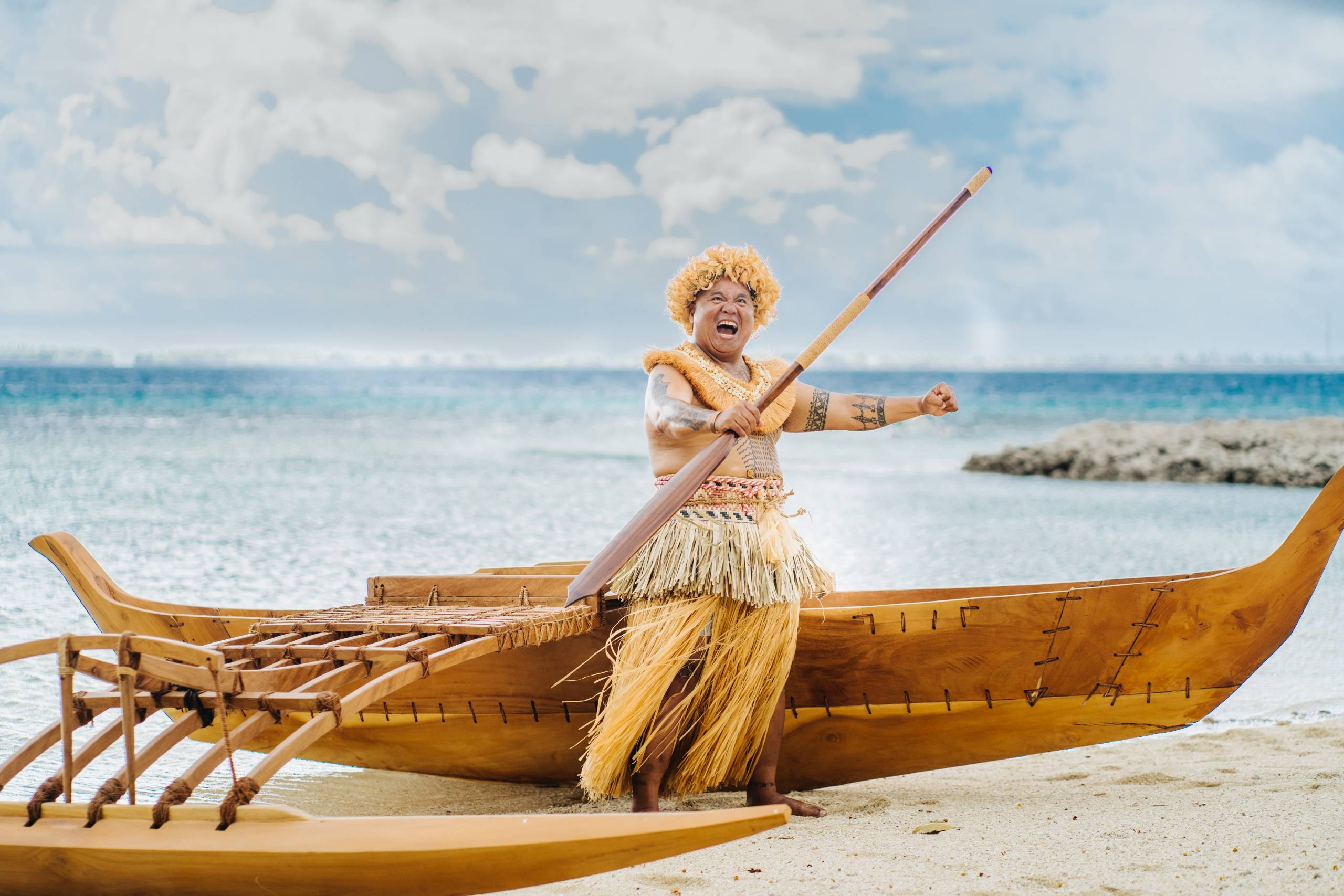
Alson Kelen, Republic of the Marshall Islands – Raise a Paddle 2021 Solidarity Action.
Lloyd’s of London has had their fair share of controversy, as they were involved in Adani’s climate wrecking Carmichael mine. Right now, they have an opportunity to rule out insurance for these destructive projects and instead insure more sustainable projects that will protect Indigenous sovereignty from the Pacific and across the world to Canada.
We’ve come up against Lloyd’s of London before – together with the Stop Adani group – and will continue to call on them to rule out all fossil fuels in their portfolio. We also ask you to stand with all indigenous communities from the Pacific to Canada by demanding that Lloyd’s of London, or any of the other insurers #StopTMX, #EndFossilFuels and #RaiseAPaddle for a #JustRecovery.
Will Lloyd’s of London stand on the right side of climate justice and publicly rule out TransMountain? Let’s see.
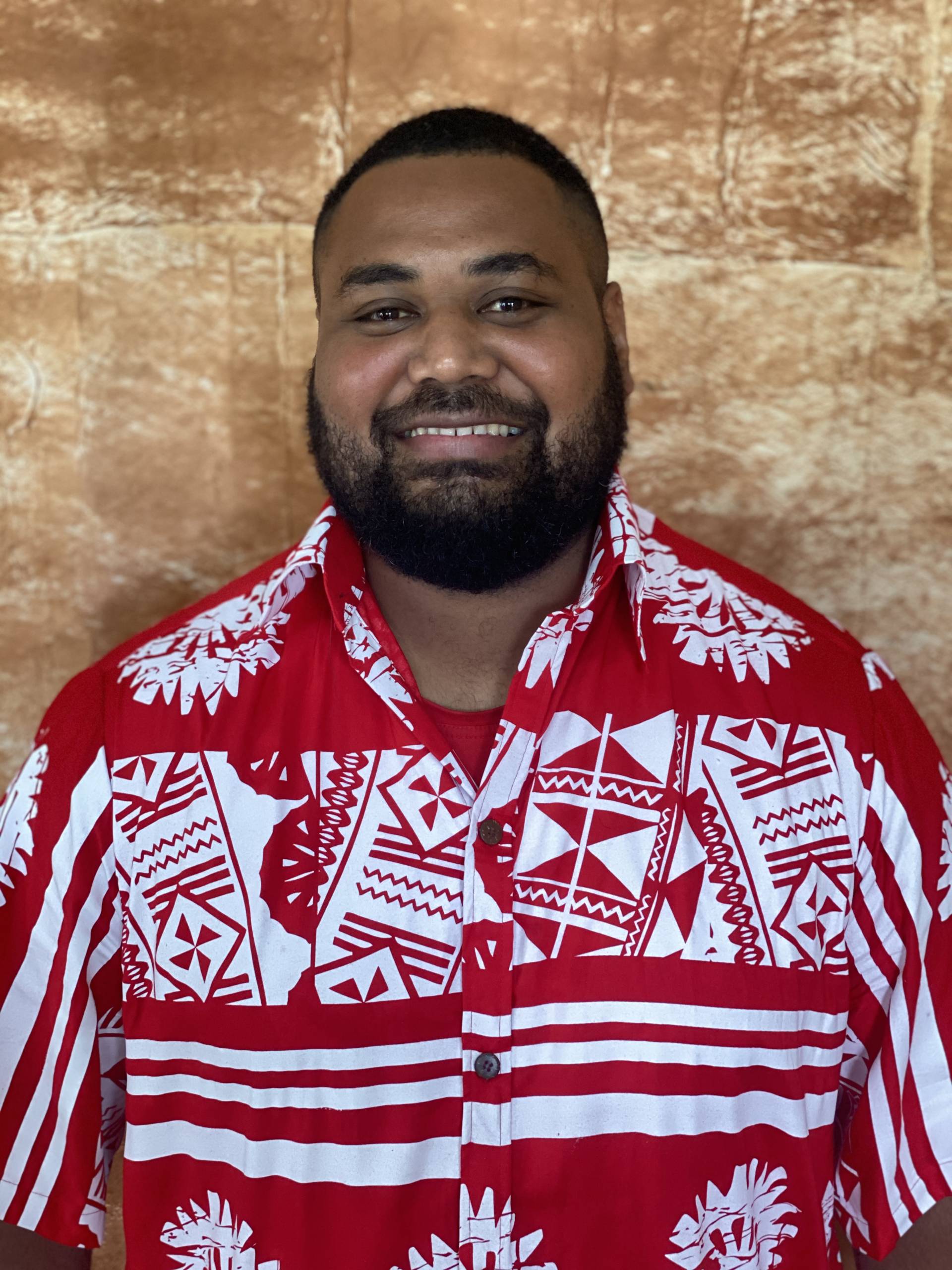 George Giuvalu Nacewa
George Giuvalu Nacewa
George Giuvalu Nacewa is 350 Pacific Climate Warrior’s Organizer, and a Fijian climate activist from the village of Yavulo, in the district of Nasigatoka in the province of Nadroga.


0 Commentaires